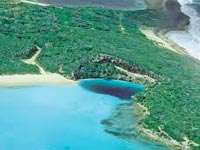Speaking at the Inter-American Development Bank’s (IDB) Caribbean Regional Forum on Friday, Prime Minister Hubert Ingraham stated that the Bahamas was the fifth most vulnerable country to the threat of rising sea levels. If the global warming projections hold true, 80 per cent of the islands of the Bahamas would be submerged.
The forum was held under the theme “After the Crisis: Setting the Stage for Resilient Growth” and the prime minister also touched on the economy and the need for sustainable development.
Mr. Ingraham said, “All of us in the region face development challenges; we all have limited capacity. The indefinite continuation of counter cyclical measures is not only unsustainable but it is undesirable, although many countries are still plagued with high, and in some instances, increasing unemployment, coupled with declines in foreign direct investment and mainly flat, if not reduced, private sector activity.
“This year, however, is showing some improvement over last year, particularly as some member countries have begun to experience positive signs in their productive sectors. Commodity prices are slowly rising, and there is expectations that small gains in the tourism sector will be realized as our main markets continue to exit from recession.
“Unemployment, however, remains stubbornly high in our Region, in many cases, in double digits – hence our chief focus on promoting economic growth and creating jobs, thereby improving the general economic welfare of our people. These are daunting tasks, given the fiscal constraints we all face.
“The theme for this Forum “After the Crisis: Setting the Stage for Resilient Growth”, is most fitting. The employment prospects of our citizens, the reduction of poverty in our region, the rebalancing of the fiscal circumstances of our governments, the mitigation of the environmental challenges, and the overall improvement of our infrastructure, all require a restoration of sustained growth in each of our countries. Achieving growth will not only require new levels of creativity and innovation, but will also demand a high level of fiscal discipline.
“It can be expected that regional governments will call upon both IDB and the CDB technical and financial resources to assist our respective economies in realizing sustained economic growth. While we know that growth in our Region will depend on the economic fortunes of the wider global economy, particularly the economies of the major industrialized countries, we must ensure that our own efforts support the fiscal, monetary and human capacities to sustain growth.
“I am fond of saying that in our case, tourism counts. This is increasingly true for most regional economies. Human resource development; the availability of efficient and reliable energy; reliable, inexpensive communications; safe and cost-effective transportation and other infrastructure are all critical to our tourism product. The standard of our infrastructure and the quality of our human resources determine our success in an increasingly competitive global tourism market. The sensible and thoughtful use of IDB and CDB resources to attend to these areas can, I believe, help provide the needed stimulus to economic growth.
“Governors, as we necessarily focus on growth in our economies, it is critically important that we give heightened attention to the challenges presented by Climate Change.
“All Caribbean Small Island Development States (SIDS) face challenges from Climate Change, not only because so much of the economic infrastructure in our countries is located along vulnerable coastlines, but also because of wider potential damage: to fresh water lens, with repercussions for agriculture; to marine temperatures increases, with implications for commercial and recreational fishing, and for stronger and more frequent storms, whose damage require perennial replacement of costly infrastructure.
“For our part, The Bahamas is the fifth most vulnerable country to sea level rise. Indeed, an increase in temperature of two degrees Celsius is projected to result in a sea level rise of two meters. Such an eventuality would submerge eighty per cent of our territory.
“And so, it is important for regional governments to marshal resources available from the IDB and the CDB to assist us in our efforts to adapt to the adverse impact of climate change.
“As we gather here, we know that there is so much at stake for our people. I trust that our deliberations will be serious and focused and that we can resolve to leave here with a programme, fine tuned to better meet the needs of our societies and region at this difficult time.”



